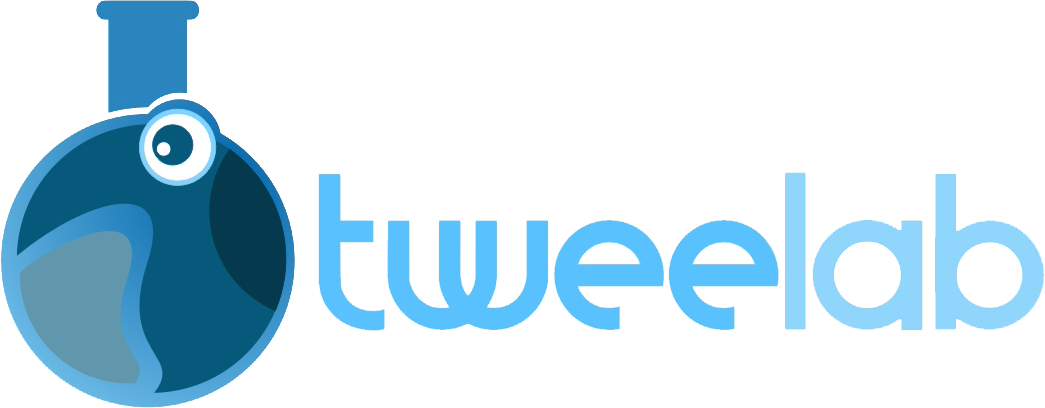Blogging is like venturing into the vast ocean with a small boat. You need to know where you are headed, what your strengths are, and what sets you apart from others to navigate the waters successfully. Identifying your blogging niche is crucial in establishing yourself as an authority in your chosen field and attracting a loyal audience.
As a blogger myself, I understand the importance of carving out a unique space in the blogosphere. It’s not enough to create content on general topics; instead, you need to find your area of expertise and differentiate yourself from others.
In this article, I will guide you through the process of identifying your blogging niche by:
- Defining your target audience
- Determining your unique selling proposition (USP)
- Establishing your area of expertise
- Developing a content strategy
- Creating high-quality content
- Promoting your blog
- Monitoring results
So let’s dive right in!
Define Your Target Audience

Let’s get to know who you’re talking to – it’s time to pinpoint your ideal reader and cater your content accordingly. This is where creating personas comes in handy.
By identifying the characteristics of your target audience, you can create a more effective blogging strategy that resonates with them. Start by conducting market research and analyzing data on demographics, interests, and behaviors. Use this information to create detailed profiles of your ideal readers, including their age range, gender, education level, occupation, hobbies, and pain points.
Knowing your target audience will help you tailor your content to their needs and preferences. For example, if you’re targeting busy working moms in their 30s who are interested in health and wellness, you might write blog posts about quick meal prep ideas or stress management tips for busy schedules.
On the other hand, if your target audience is college students looking for budget-friendly travel destinations, you might focus on sharing tips for finding cheap flights or backpacking through Europe on a tight budget. The more specific you are about who you’re writing for, the easier it will be to create content that resonates with them and builds a loyal following over time.
Determine Your Unique Selling Proposition

You can’t afford to miss out on crafting a powerful, one-of-a-kind message that will make your blog stand out from the thousands of others online. The key to achieving this is by determining your unique selling proposition or USP.
Your USP is what sets you apart from the competition and makes you stand out in your niche. To determine your USP, start by identifying differentiation tactics used by other bloggers in your niche. Conduct a competitive analysis and determine what sets them apart from each other.
Then, identify gaps that exist in their messaging and content creation strategies where you can fill in with your own unique perspective and expertise. This will not only help you create a strong brand identity for yourself but also ensure that your blog resonates with readers looking for something different and refreshing.
Remember, a well-defined USP is crucial when it comes to creating a successful blog that stands the test of time.
Establish Your Area of Expertise

Establishing your area of expertise is crucial for creating a blog that truly resonates with readers and makes them feel like they’ve found a trusted source in a sea of overwhelming information.
Developing skills in your chosen niche is necessary to establish yourself as an authority figure and gain the trust of your audience. You need to be well-versed in the topics you discuss, and provide valuable insights that readers can’t find elsewhere.
Navigating competition is also important when establishing your area of expertise. With so many blogs out there, it’s important to differentiate yourself from others in your niche. One way to do this is by offering unique perspectives or incorporating personal experiences into your writing.
Additionally, finding ways to stand out visually can help attract readers’ attention and set you apart from competitors. By honing in on your skills and differentiating yourself from others, you’ll be able to create a successful blog that resonates with readers and establishes you as an expert.
Develop a Content Strategy

Developing a content strategy is crucial for creating a successful blog that resonates with readers and establishes you as an expert in your field.
It involves identifying the topics that will appeal to your target audience, determining the right mix of content types (e.g., how-to articles, opinion pieces, case studies), and planning when and how often to publish.
It also means considering SEO optimization and keyword research to ensure that your blog is easily discoverable by search engines.
In addition to written content, visual content can help increase engagement and enhance the reader’s experience. This can include multimedia integration such as videos, infographics, or images.
By incorporating these elements into your posts strategically, you can further establish yourself as an authority on your chosen topic while keeping readers engaged.
Create High-Quality Content

Creating high-quality content is essential for building a successful blog that captivates readers and showcases your knowledge in the field.
As a blogger, it’s important to understand the various content creation techniques that can help you produce engaging and informative posts. One effective technique is to incorporate multimedia elements such as videos and infographics, which can further enhance the reader’s experience.
To ensure that your content reaches its full potential, it’s also crucial to optimize it for search engines. This involves using relevant keywords throughout your post, including in the title, meta description, and body of the text.
Additionally, formatting your content with headings and subheadings can make it easier for both readers and search engines to navigate. By following these content optimization tips, you can increase the visibility of your blog and attract more readers who are interested in what you have to say.
Promote Your Blog

Now it’s time to spread the word about your blog and increase its visibility through effective promotion strategies. It’s not enough to just create high-quality content, you need to actively promote your blog in order to attract readers and grow your audience. There are various ways to promote your blog, but two effective strategies are collaboration opportunities and social media promotion.
Collaboration opportunities entail working with other bloggers or websites that have a similar target audience as yours. This can be done through guest posting, where you write an article for their website and include a link back to your own blog. Another option is collaborating on projects or events that will benefit both parties involved. Through collaborations, you can reach new audiences while also building relationships with other bloggers in your niche.
| Pros | Cons | Tips for Success |
|---|---|---|
| Can help expose your brand to new audiences | May require more effort than solo promotion methods | Choose partners carefully – make sure they align with your values/brand voice |
| Opportunity for cross-promotion and link-building | May require some compromise in terms of creative control | Set clear goals before starting any collaborative project/event |
| Can lead to long-term partnerships and networking opportunities | May take longer to see results compared to other promotion methods | Be open-minded and willing to learn from others’ perspectives |
Social media promotion involves leveraging different social media platforms such as Instagram, Twitter, Facebook, LinkedIn, etc., in order to drive traffic towards your blog. Social media allows you to connect with readers on a more personal level by sharing behind-the-scenes glimpses into the creation process or engaging them through polls/questions on stories/posts. It also helps you establish credibility within the blogging community by positioning yourself as a thought-leader in your niche.
| Pros | Cons | Tips for Success |
|---|---|---|
| Free exposure across multiple platforms | Requires consistent engagement/activity | Choose platforms that align with your target audience |
| Easy to use and share content across different channels | Can be time-consuming to manage multiple accounts | Post consistently and regularly for maximum impact |
| Opportunity to connect with readers on a more personal level | May not yield immediate results in terms of traffic or engagement | Experiment with different types of content (e.g. videos, reels, carousels) |
| Helps establish credibility within the blogging community | Risk of negative feedback if content is not well-received | Engage with other bloggers/creators in your niche by commenting/liking their posts |
By leveraging collaboration opportunities and social media promotion, you can effectively promote your blog and increase its visibility among potential readers. However, it’s important to remember that there is no one-size-fits-all approach when it comes to promotion. It may take some trial-and-error before you find the strategies that work best for you and your blog.
Monitor Your Results

I always keep track of my blog’s performance by monitoring my traffic and engagement. It helps me understand what resonates with my audience, which topics get the most attention, and how I can improve my content.
By analyzing my metrics regularly, I can make adjustments to my strategy as needed to ensure that I’m meeting my goals and delivering valuable content to my readers.
Track Your Traffic and Engagement
To keep my blog on track, I always make sure to track my traffic and engagement. By using analytics tools, I can see which posts are performing well and which ones need improvement. This helps me optimize my outreach efforts and focus on creating content that resonates with my audience.
Tracking traffic and engagement is essential for any blogger who wants to grow their following. By analyzing the data, I can identify patterns and trends in user behavior, such as what types of content they prefer or what times of day they are most active. This information allows me to tailor my content strategy accordingly, whether it’s by adjusting the frequency of my posts or experimenting with different formats like video or infographics.
Ultimately, staying on top of my traffic and engagement metrics helps me stay connected with my readership and deliver valuable content that keeps them coming back for more.
Make Adjustments to Your Strategy as Needed
Keep your blog strategy on point by regularly analyzing metrics and testing strategies based on user behavior. Your analytics can tell you a lot about what content is resonating with your audience, which platforms are driving the most traffic, and where you need to make adjustments.
Use this data to identify trends and experiment with tactics that will keep your readers engaged. Adapting trends and experimenting with different tactics can help you stay ahead of the game in an ever-changing digital landscape.
Keep an eye on what’s working for other bloggers in your niche, but don’t be afraid to try something new or put your own spin on it. By staying flexible and responsive, you’ll be able to continue delivering the best possible content to your audience and keep them coming back for more.
Key Takeaways
- Identifying your blogging niche is crucial for establishing yourself as an authority and attracting a loyal audience.
- Define your target audience and create detailed profiles of your ideal readers.
- Determine your unique selling proposition (USP) to differentiate yourself from competitors.
- Establish your area of expertise by developing skills in your chosen niche.
- Develop a content strategy that appeals to your target audience and incorporates SEO optimization.
- Create high-quality content that incorporates multimedia elements and is optimized for search engines.
- Promote your blog through collaboration opportunities and social media promotion.
- Monitor your traffic and engagement metrics to make adjustments to your strategy.
- Stay motivated and consistent by setting goals, managing your time, and scheduling dedicated blogging time.
- Avoid common mistakes like not identifying your niche properly and not consistently publishing quality content.
- Monetize your blog through affiliate marketing and sponsored content.
Frequently Asked Questions
How do I come up with blog post ideas that are relevant to my niche?
As a blogger, one of the most important tasks is coming up with relevant blog post ideas for your niche. It can be challenging to consistently generate fresh content that resonates with your audience.
To tackle this task, I use a combination of keyword research and content creation strategies. First, I conduct thorough keyword research to identify popular topics within my niche and gather inspiration from related industries.
Then, I brainstorm unique angles on these topics that will differentiate my content from others in my field. By utilizing these techniques, I’m able to continuously produce engaging and informative blog posts that keep my readers coming back for more.
What are some effective ways to build a community around my blog?
Building engagement and using social media strategies are key components to creating a thriving community around your blog.
One effective way to build engagement is by consistently posting high-quality content that resonates with your audience. You can also encourage interaction by asking for feedback or posing questions in your posts.
Social media is a powerful tool for promoting your content and building relationships with your followers. Utilize platforms such as Twitter, Instagram, and Facebook to share your blog posts and engage with others in your niche.
By fostering a sense of community through thoughtful content and social media participation, you can establish yourself as an authority in your field while also creating a loyal following for your blog.
How do I stay motivated and consistent with my blogging efforts?
As a blogger, staying motivated and consistent with my efforts can be challenging. However, I’ve found that implementing effective blogging strategies and managing my time wisely has helped me stay on track.
One strategy that has worked for me is setting specific goals for each blog post and breaking down the tasks into manageable chunks. This helps me stay focused and motivated throughout the writing process.
Additionally, I make sure to schedule dedicated time for blogging in my calendar and treat it as a priority task. By doing so, I’m able to consistently produce high-quality content without sacrificing other important aspects of my life.
What are some common mistakes new bloggers make and how can I avoid them?
As a new blogger, I’ve learned that there are many common mistakes to avoid if you want to succeed in the blogging world.
One of the biggest mistakes is not properly identifying your niche and expertise. Without a clear focus, it’s easy to become lost in the sea of content online. To avoid this mistake, take the time to research and define your niche.
Another mistake is not consistently publishing quality content and engaging with your audience. It’s important to have a schedule and stick to it, while also responding to comments and building relationships with your readers.
By avoiding these common blogging mistakes and following tips for successful niche identification, you can set yourself up for success in the ever-evolving world of blogging.
How can I monetize my blog and turn it into a profitable business?
To monetize my blog and turn it into a profitable business, I focus on two key strategies: affiliate marketing and sponsored content.
Affiliate marketing involves promoting products or services on my blog and earning a commission when readers make a purchase through my unique affiliate link. This works best when I promote products that are relevant to my niche and valuable to my audience.
Sponsored content, on the other hand, involves partnering with brands or businesses to create content that promotes their products or services. This can be in the form of sponsored posts, reviews, or social media promotions. To ensure success with sponsored content, I only work with brands that align with my values and interests and always disclose any partnerships to maintain transparency with my readers.
By incorporating these strategies into my blogging approach, I’m able to generate income while still providing value to my audience.
Final Thoughts
In conclusion, identifying your blogging niche is crucial to the success of your blog. By defining your target audience and determining your unique selling proposition, you can establish your area of expertise and develop a content strategy. It’s important to consistently create high-quality content, promote your blog, and monitor your results to stand out from the crowd.
Did you know that according to HubSpot, companies that publish 16+ blog posts per month get almost 3.5 times more traffic than those that publish between 0-4 monthly posts? This statistic highlights the importance of consistently producing valuable content that resonates with your target audience and drives traffic to your site.
Remember to stay true to yourself and showcase what makes you unique to differentiate yourself from other bloggers in the same niche. With dedication and hard work, you can establish yourself as an expert in your field and build a loyal following of readers who look forward to reading every post on your blog.

